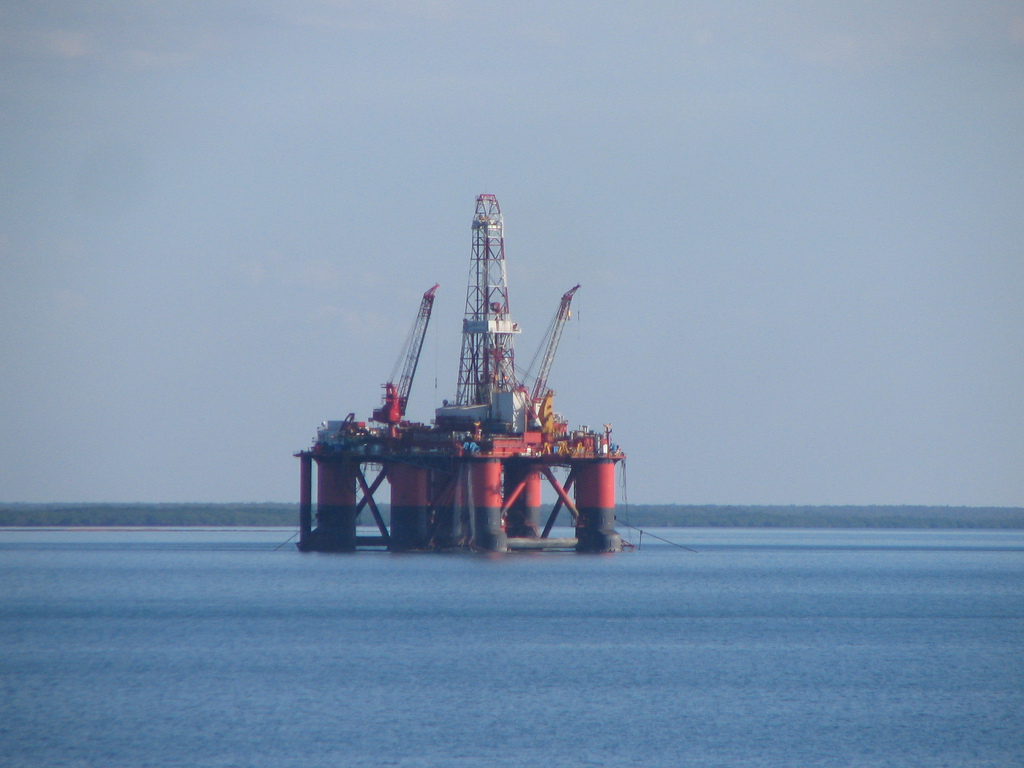Experts note that in many respects such dynamics are connected with the fact that Saudi Arabia sought to protect its share of the oil market, especially against the backdrop of the upcoming IPO of the oil company. It is assumed that the kingdom will place not more than 5% of shares of Saudi Aramco in 2018.
It is worth recalling that, by the end of 2015, the average annual production was 10.2 million barrels per day. This year, Saudi Aramco's production fell below 10 million bpd in order to comply with OPEC arrangements.
If Saudi Aramco’s IPO does not bring the desired funds, the planned project to diversify the kingdom’s economy will not be able to move forward as planned, the BMI Research report says.
However, despite everything, investors are clearly set on a successful IPO.
"The IPO will become the litmus test of foreign investors", Saudi Arabia believes. The success of the IPO will be crucial in determining the economic and political trajectory of the kingdom over the next decade, it will also help increase investor confidence, increase transparency in the securities arena and allow for rapid monitoring of the diversification process Economy, while at the same time strengthening the political capital of Muhammad bin Salman," the BMI Research report said.
The IPO is planned to be held in 2018 on the TADAWUL domestic exchange, as well as on another stock market. Riyadh has not yet decided which foreign stock exchanges will participate in the listing of Aramco. However, New York, London, Toronto and Hong Kong have already expressed their desire to participate.
The "Vision 2030" plan was introduced a year ago as two years of low oil prices contributed to the fall of state revenues and caused appearance of large holes in the national budgets of the Gulf countries.
Dependence of the kingdom's profits on fossil fuels makes it particularly vulnerable to fluctuations in oil and commodity markets. Diversification is needed as soon as possible if the country wants to keep to finance subsidies and social services, to which Saudi citizens have long been accustomed.
Saudi Arabia will retain full control over oil wells and production of Aramco even after 5% of the state shares are sold.
source: bloomberg.com
It is worth recalling that, by the end of 2015, the average annual production was 10.2 million barrels per day. This year, Saudi Aramco's production fell below 10 million bpd in order to comply with OPEC arrangements.
If Saudi Aramco’s IPO does not bring the desired funds, the planned project to diversify the kingdom’s economy will not be able to move forward as planned, the BMI Research report says.
However, despite everything, investors are clearly set on a successful IPO.
"The IPO will become the litmus test of foreign investors", Saudi Arabia believes. The success of the IPO will be crucial in determining the economic and political trajectory of the kingdom over the next decade, it will also help increase investor confidence, increase transparency in the securities arena and allow for rapid monitoring of the diversification process Economy, while at the same time strengthening the political capital of Muhammad bin Salman," the BMI Research report said.
The IPO is planned to be held in 2018 on the TADAWUL domestic exchange, as well as on another stock market. Riyadh has not yet decided which foreign stock exchanges will participate in the listing of Aramco. However, New York, London, Toronto and Hong Kong have already expressed their desire to participate.
The "Vision 2030" plan was introduced a year ago as two years of low oil prices contributed to the fall of state revenues and caused appearance of large holes in the national budgets of the Gulf countries.
Dependence of the kingdom's profits on fossil fuels makes it particularly vulnerable to fluctuations in oil and commodity markets. Diversification is needed as soon as possible if the country wants to keep to finance subsidies and social services, to which Saudi citizens have long been accustomed.
Saudi Arabia will retain full control over oil wells and production of Aramco even after 5% of the state shares are sold.
source: bloomberg.com





